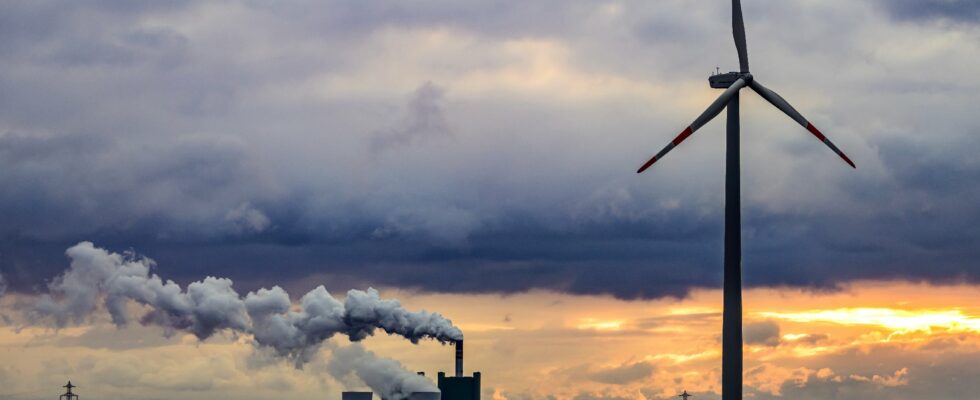This November 13, at the Collège de France, Emmanuel Macron does not hide his annoyance. “I don’t care if the electron that helps me […] produce green hydrogen either from offshore wind in Denmark, solar in Spain or nuclear in France”, he declared during a round table devoted to European competitiveness, in the presence of Mario Draghi. Behind this offensive, the idea that the president carries is not new. It is “technological neutrality” – a concept that has become France’s battlehorse against Brussels in terms of energy.
The principle is simple: do not favor one technology and leave the choice of method to manufacturers to achieve carbon neutrality in Europe by 2050. “It promotes competition, remarks Paul Lehmann, professor of energy economics at the University of Leipzig It is sometimes difficult to know which technology is the best or how progress will evolve.
Theory and practice
Mentioned in Mario Draghi’s flagship report published in September, technological neutrality is included in the mission letter of the new energy commissioner. However, it has not always been taken into account. During the debates around the European taxonomy, which classifies so-called “sustainable” activities, Paris wanted nuclear power to benefit from the “green” label, in the same way as renewable energies, due to its carbon-free nature. The negotiations to convince the European Commission were tough.
The years pass, and France remains inflexible on the issue. Despite European requirements, it refused to set a quantified target in terms of renewable energies, instead proposing in its roadmap a “carbon-free” objective, combining renewables and nuclear power. Same headache on hydrogen regulation: on the EDF side, we deplore that the European hydrogen bank, which supports the development of the sector, is reserved for renewable hydrogen.
This narrow vision also penalizes the automotive sector. The European Union has imposed the end of the thermal engine in 2035, focusing on electricity and ruling out the option of synthetic fuels. To the great dismay of equipment manufacturers like Bosch, who continue to advocate the use of the latter. The German group tells L’Express that it is in favor of “an in-depth review of CO2 regulations, which is guided by the principle of technological neutrality. The fight against climate change must take place on all fronts.” For his part, Fabrice Godefroy, spokesperson for the collective of mobility experts, is surprised that “the Commission has pushed a technology on which China is ahead of us, while we were the leaders on thermal vehicles and could innovate on the subject.
Own interests
Emmanuel Macron insists that ignoring technological neutrality is “real stupidity”. The head of state believes that Europe could be “very competitive compared to the Americans or the Chinese” by changing its practices. Because in the end, one of the most important criteria is carbon intensity, we argue at the Elysée: “industrialists are questioning the complexity of European rules for this or that technology, while the American Inflation Reduction Act only looks at the final impact, regardless of how it was achieved.”
Brussels would therefore have every interest in tackling the issue with pragmatism and leaving more room for maneuver to member states, points out Maxence Cordiez, associate energy expert at the Montaigne Institute, in a report. “We will not be able to decarbonize countries as different as Germany and Malta in the same way”, which do not start from the same energy mix.
However, the defense of this principle is not always innocent. Everyone brandishes it when it suits them. “Technological neutrality is a buzzword, often claimed by states or industries that have interests in a specific technology,” notes Paul Lehmann. Nuclear power for France, the thermal engine for other countries. If the principle is common sense, its implementation is only possible in a world where the Twenty-Seven can speak with one voice. However, in the absence of consensus, member countries continue to argue over “the right” technology to choose. Result: Europe remains behind.
.
